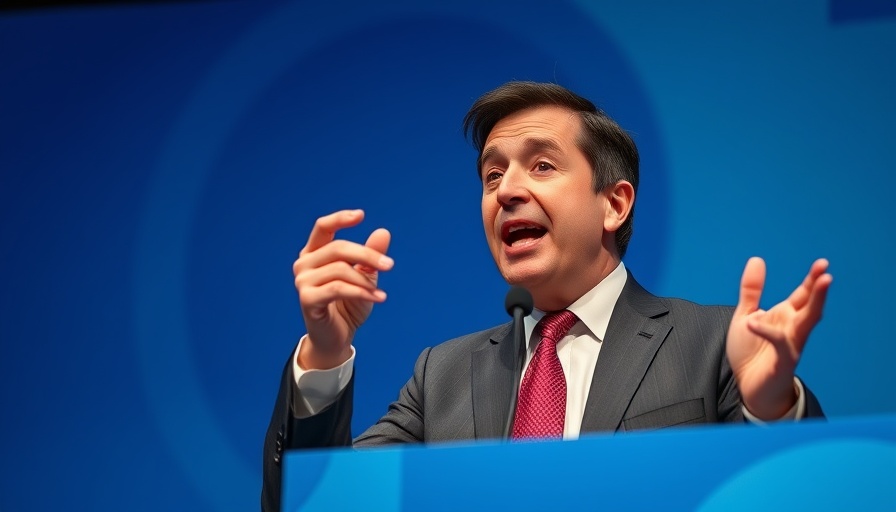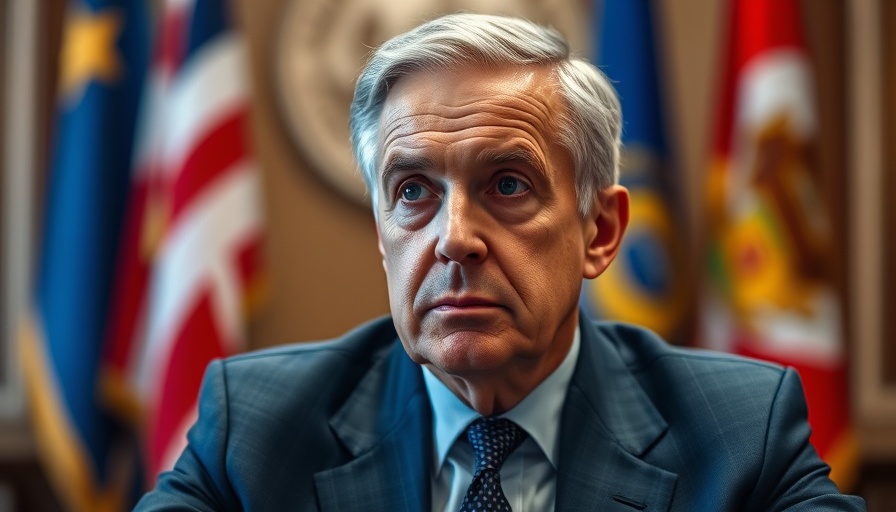
Gauteng’s Financial Irregularity: A Deep Dive into R4.2 Billion Expenditure
As the Gauteng government faces scrutiny over its recent financial dealings, the staggering report of R4.2 billion in irregular expenditure during the 2024/25 financial year has raised serious questions about governance and accountability in South African politics. This astounding figure not only highlights issues around financial management but also rekindles fears of state capture and administrative neglect within one of South Africa's wealthiest provinces.
The Consequences of Financial Mismanagement
Irregular expenditure within government entities can stem from multiple issues, including poor service delivery, unchecked spending, and corruption. This phenomenon is not unique to Gauteng; it reflects a broader trend in South African governance that has been marred by corruption investigations, often leading to detrimental socio-economic impacts. With already high unemployment rates and ongoing economic recovery efforts hampered by load shedding and infrastructure decay, the implications of such financial discrepancies can ripple through the communities reliant on government services.
Link to National Trends and Political Accountability
This revelation comes at a crucial time, as South Africa prepares for national elections. Political parties, including the ANC and the Democratic Alliance (DA), will undoubtedly leverage this financial scandal to critique each other’s governance records. The EFF's stance on state capture may gain traction as this issue of financial irregularity reaffirms their calls for a transformation in state management policies. Citizens must hold political figures accountable, pushing for transparency and changes to ensure that public funds are utilized appropriately.
Societal Impact: Understanding the Bigger Picture
The significance of this irregular expenditure transcends the financial figures. It speaks to a breakdown in trust between the government and its citizens, exacerbating feelings of disenfranchisement, particularly within historically marginalized communities. As these communities experience heightened instability due to economic decline and service delivery protests, the lack of accountability in government spending only aggravates existing social tensions.
Future Predictions: Governance Reforms on the Horizon?
The Gauteng government's scandal might catalyze urgent reforms in financial governance practices across South Africa. Public sector strikes and increasing demands for improved service delivery could push the state to adopt stricter measures regarding transparency and fiscal oversight. Innovations in public-private partnerships could emerge as a possible solution to alleviate funding gaps while ensuring that financial governance meets the needs of citizens more effectively.
Actionable Insights for Voter Engagement
The impending national elections present a pivotal opportunity for South Africans to critically evaluate their political leaders and the systems in place. Voters must engage with local governance initiatives, demanding accountability and proactive measures to curb corruption and mismanagement in future budgets. Participation in community dialogues and leveraging social media platforms can amplify calls for transparency, potentially shaping more responsible governance in the future.
Final Thoughts: Contributing to Change
It is imperative for professionals and citizens alike to become informed and involved in reshaping the landscape of South African governance. Understanding the gravity of fiscal mismanagement in contexts like Gauteng's R4.2 billion irregular expenditure can empower communities to advocate for reform and better governance. As policy discussions unfold leading to the national elections, voice your concerns and raise awareness about the implications of governance failures on everyday lives.
 Add Row
Add Row  Add
Add 




Write A Comment